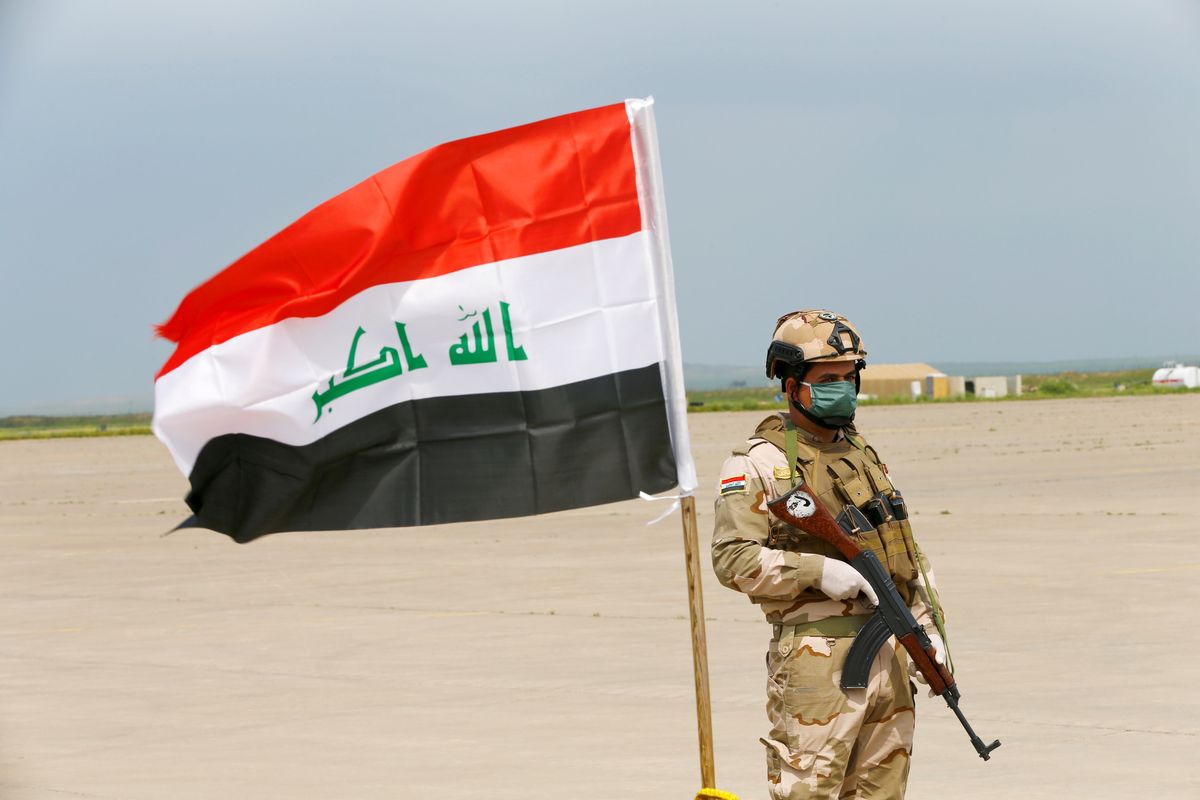Earlier this year, in response to diplomatic confusion over reports of an abrupt US withdrawal from Iraq, Mark Esper, the US Secretary of Defense, said decisively: "We have no plans to leave Iraq."
Now, eight months later, the Trump administration says it will reduce the number of US forces in the country to 3,000 in the coming weeks — a reduction from the 5,200 currently there. What does the US troop drawdown — and potential eventual full withdrawal — mean for Iraq, the region, and the US?
For Iraq...
Shiite dominance: Some analysts fear that amid ongoing regional tumult, Iraq's fragile democracy might collapse without a sustained US presence there.
The US has played a key (albeit very flawed) role in propping up Iraq's democracy — broadly viewed as a kleptocracy — and some observers warn that a US troop drawdown will pave the way for hardline Shiite groups to take center stage within an already deeply divided and corrupt political system. Inevitably, this would also exacerbate sectarian tensions by sidelining minority Sunnis and Kurds.
Indeed, this was the case in 2011 when the US withdrew troops deployed for the 2003 invasion. Shiite domination and subsequent clashes over power-sharing arrangements poisoned Iraq's already troubled politics and helped set the stage for the Sunni-supported rise of the Islamic State in 2014.
An economy in need of rescue: Even before the coronavirus pandemic, Iraq's economy was in freefall. Now, plunging oil prices and cratering demand for the commodity — Iraq's main export — have pushed the country's economy to the brink. Hunger and poverty have deeply penetrated the middle class, and the Iraqi government has no social support system to help unemployed Iraqis weather the COVID storm.
Now, an even more fragile Iraq could leave the country's economy vulnerable to deeper exploitation by international and regional powers. There is precedent for this too. For years, Iran has tried to gain leverage within Iraqi politics, and bolster its trade relations with Baghdad in order to evade crippling US sanctions. Last year, Iran's President Hassan Rouhani said his goal was to increase bilateral trade between the two countries to $20 billion annually, up from $12 billion.
Similarly, Turkey has sought to take advantage of Iraq's vulnerability to strengthen bilateral trade, and it's widely believed that Ankara could try and fill the void left by US military contractors in the future.
It's important to note that when oil prices plummeted in 2014, the IMF doled out $4.5 billion in aid to help Iraq weather the storm. But amid the current pandemic, Iraq is just one of many crisis-stricken developing countries pleading with the IMF for urgent assistance — and Baghdad will need help from wherever it can get it.
The region...
An ISIS resurgence: The US military's role in training thousands of Iraqi security forces in recent years has helped quash the Islamic State, which now holds little of the territory it once occupied. (At its peak, ISIS held 34,000 square miles of land across Iraq and Syria.)
However, ISIS has exploited COVID-19 lockdowns in recent months to launch fresh attacks in urban areas like Baghdad and Kirkuk, killing scores of Iraqi soldiers.
The violent surge coincided with the Iraqi government's struggle in filling the security void left by the US decision earlier this year to withdraw its own troops because of concerns about the pandemic, and as part of a planned phased withdrawal of troops. Indeed, without US military support and training programs, Iraqi forces might struggle to fend off an offensive by newly emboldened ISIS fighters, analysts say.
The US...
For President Trump, following through on his longstanding promise to reduce the number of American troops stationed in far-flung war zones has renewed urgency now that polls show him trailing his Democratic opponent Joe Biden in his bid for re-election.
That also could be part of the reason for the Pentagon's seemingly ad-hoc announcement on Wednesday that it will cut the number of American troops in Afghanistan by early November too, despite the current delicate phase of intra-Afghan peace talks. (With apologies to Carl von Clausewitz, sometimes war really is just the "continuation of politics by other means.")



















